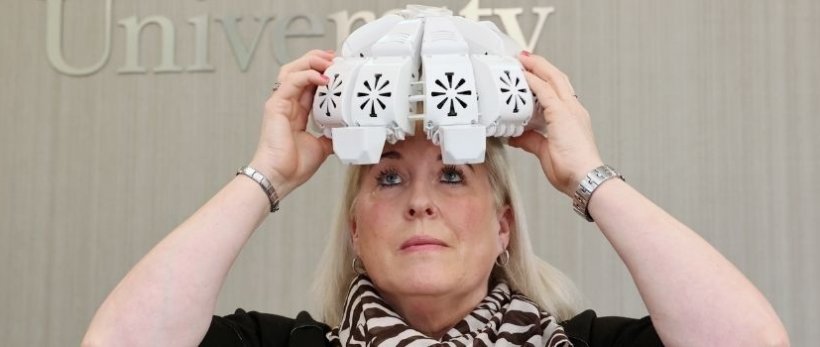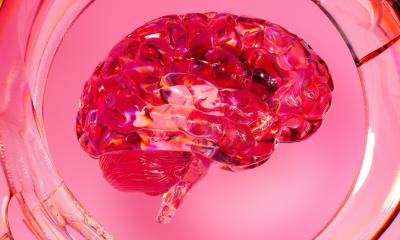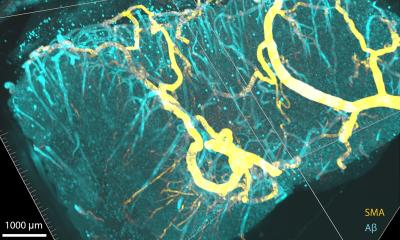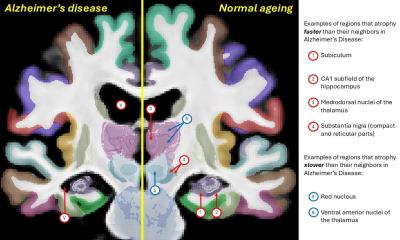
Image source: Durham University
News • Brain stimulation
Infrared light helmet might aid dementia patients
Researchers at Durham University are working on a new infrared light therapy that might have the potential to help people with dementia.
In the approach, people wear a specially adapted helmet which delivers infrared light deep into the brain for six-minutes per treatment. This stimulates mitochondria that generate most of the chemical energy needed to power the biochemical reaction in the brain’s cells.
The researchers published their findings in the journal Photobiomodulation, Photomedicine, and Laser Surgery.
The research team is confident that this can lead to a rise in the level of an organic compound called adenosine triphosphate (ATP), which is markedly decreased in dementia patients, provides energy to drive processes in living cells and helps nerve cells repair. The therapy can also increase levels of nitric oxide, and therefore blood flow in the brain, by improving the flexibility of the membrane that lines the inside of blood vessels. This opens up blood vessels so more oxygen can reach the white matter deep in the brain. The helmet can be easily worn by patients, meaning the therapy can be readily delivered at home.
In their latest pilot study the team found improvements in healthy people, aged 45 and over, who received six minutes of therapy twice daily at a wavelength of 1068 nanometres over a period of four weeks. This included a significant improvement in performance in motor function (finger tapping), memory performance (mathematical processing, a type of working memory), delayed memory and brain processing speed.
The researchers have also been involved in two separate pilot Alzheimer’s disease clinical studies in the USA looking at the effectiveness of the therapy, which were published in the journals Cureus and Aging and Disease. Those studies found a similar profound and rapid positive effect for both men and women with mild to moderate dementia. Participants reported having more energy, elevated mood and less anxiety, along with better physical and mental involvement in daily activities. Improved mood was also noted by their caregivers.
The scientists stress that more research into the use and effectiveness of the therapy is needed, but that their early findings are promising. They also think the therapy might have potential benefits for other disorders like Parkinson’s, traumatic brain injury or motor neurone disease.
Source: Durham University
20.10.2021





